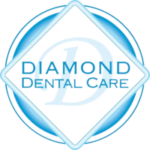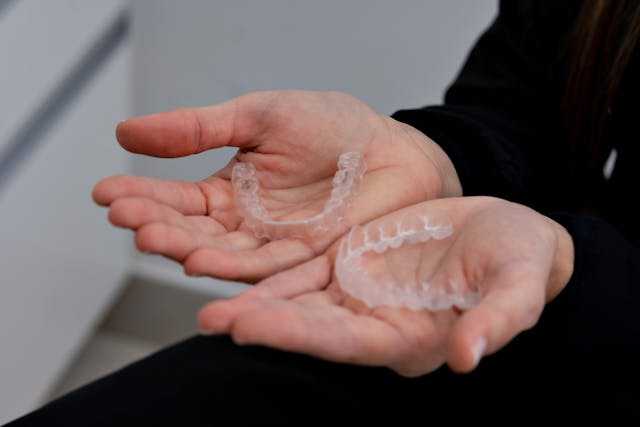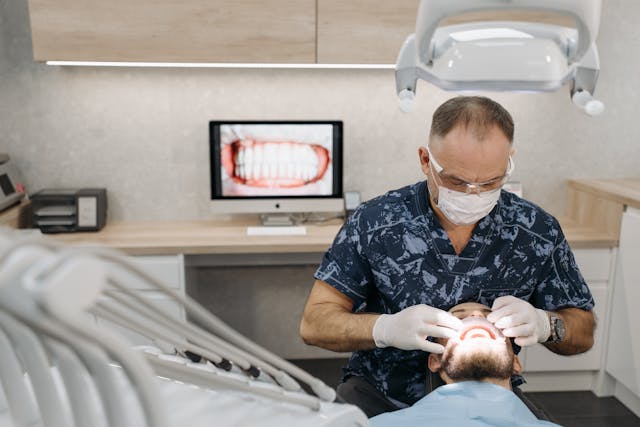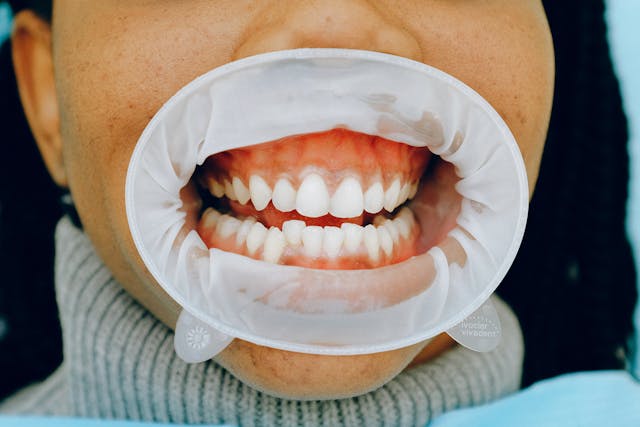Introduction
Dental crowns, also known as dental caps, are essential dental restorations that play a crucial role in maintaining oral health. These caps cover damaged or weakened teeth, providing both aesthetic and functional benefits. Understanding when and why dental crowns are needed is vital for making informed decisions about oral care.
At Diamond Dental Care, we can examine you in our cosmetic dentistry office and discuss what you don’t like about your smile. If you have gaps between your teeth or they are crooked, stained, or misshapen, we can fix them in our dental office. There are several ways we can address most aesthetic issues, so we will conduct an examination, take x-rays, discuss the timeframe we are working with, and then present you and your parents with a variety of options to choose from.
Since some have set time constraints, it is best to schedule your appointment with our office as soon as possible. You can do so by calling (909) 860-7579. You can also follow us on Facebook or provide your valuable feedback at Yelp. Thanks.
When Are Dental Crowns Needed?
Dental Decay: One of the primary reasons for needing dental crowns is severe tooth decay. When a tooth’s structure is compromised due to decay, a crown helps restore its strength and prevent further damage.
Fractured or Broken Teeth: Accidents, injuries, or biting on hard objects can lead to tooth fractures or breakage. Crowns act as protective shields, covering and strengthening damaged teeth.
Cosmetic Purposes: Dental crowns are also employed for cosmetic purposes, enhancing the appearance of misshapen or discolored teeth. This aesthetic improvement contributes to a brighter and more confident smile.
After Root Canal Treatment: Teeth that undergo root canal treatment often require additional protection. Crowns are placed over treated teeth to ensure their long-term stability and functionality.
Types of Dental Crowns
Porcelain Crowns: Known for their natural appearance, porcelain crowns are an excellent choice for front teeth due to their ability to mimic the translucency of natural teeth.
Metal Crowns: Metal crowns, typically made of gold or silver alloys, offer exceptional durability. However, their metallic appearance makes them less suitable for visible teeth.
Porcelain-Fused-to-Metal (PFM) Crowns: Combining the strength of metal with the aesthetics of porcelain, PFM crowns are a popular choice for both front and back teeth.
Zirconia Crowns: Zirconia crowns provide a durable and aesthetically pleasing option. Their strength makes them suitable for withstanding the biting force of back teeth.
Factors to Consider When Choosing Dental Crowns
Durability: Depending on the location of the tooth, durability becomes a crucial factor. Back teeth, which endure more pressure during chewing, may require more durable materials.
Aesthetics: For front teeth, the aesthetic appeal of crowns is significant. Porcelain or porcelain-fused-to-metal crowns are often preferred for their natural look.
Cost: The cost of dental crowns varies based on the material used. While metal crowns are more affordable, porcelain and zirconia crowns may have a higher price tag.
Allergies: Some individuals may have allergies to certain materials used in Crowns. Considering potential allergies is crucial for a successful and comfortable dental restoration.
The Dental Crown Procedure
Examination and Consultation: The journey begins with a thorough examination and consultation with the dentist. X-rays may be taken to assess the extent of damage and plan the treatment.
Tooth Preparation: Before crown placement, the tooth is prepared by removing a portion of the enamel. This ensures a proper fit for the crown without altering the natural bite.
Impressions: Accurate impressions of the prepared tooth are taken to create a custom-fit crown. Advanced technology, such as digital impressions, enhances precision in this step.
Temporary Crown Placement: While waiting for the permanent crown to be fabricated, a temporary crown is placed to protect the tooth. It is crucial to follow care instructions for temporary crowns.
Permanent Crown Placement: Once the permanent crown is ready, it is securely placed over the tooth using dental cement. The dentist ensures proper alignment and bite.
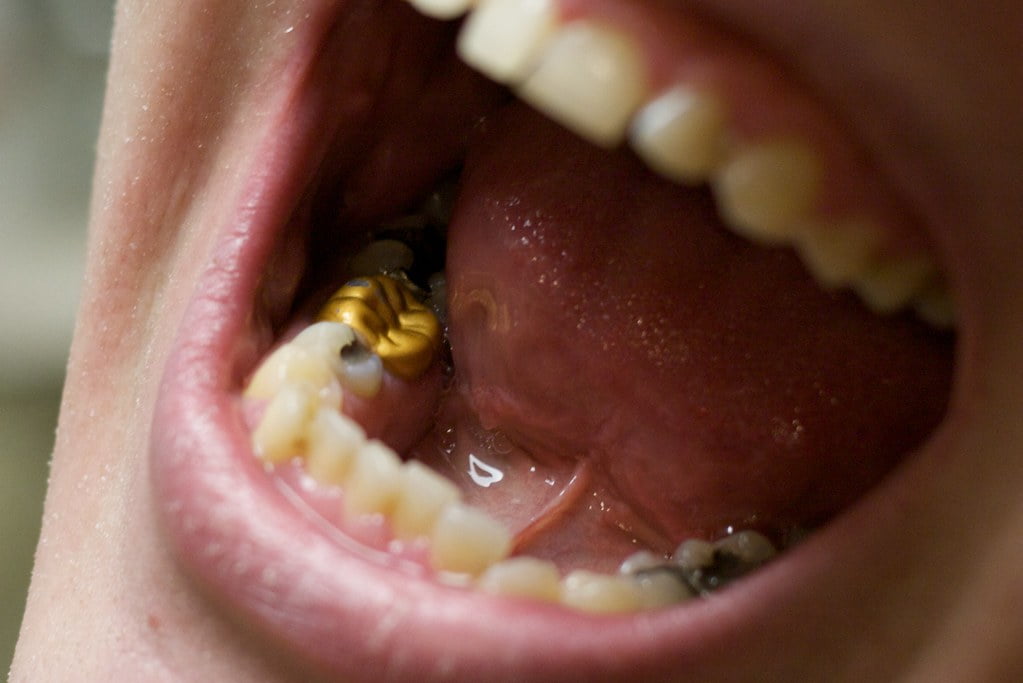
Caring for Dental Crowns
Oral Hygiene Practices: Maintaining good oral hygiene is crucial for the longevity of dental crowns. Regular brushing, flossing, and the use of antimicrobial mouthwash help prevent decay around the crown.
Regular Dental Check-ups: Routine dental check-ups are essential to monitor the condition of Crowns and address any issues promptly. Dentists may recommend professional cleanings to enhance longevity.
Avoiding Certain Foods and Habits: While Crowns are durable, avoiding excessive force on them is recommended. Chewing hard or sticky foods and habits like teeth grinding may pose a risk to the longevity of crowns.
Potential Complications and Solutions
Sensitivity: Some individuals may experience sensitivity after crown placement. This is usually temporary, and using desensitizing toothpaste or gels can alleviate discomfort.
Discoloration: While porcelain crowns resist staining, PFM crowns may experience discoloration over time. Regular dental cleanings can help address this issue.
Allergic Reactions: Allergic reactions to crown materials are rare but possible. Dentists carefully consider patients’ medical history to minimize the risk of allergies.
Advancements in Dental Crown Technology
3D Printing: The dental industry has embraced 3D printing technology for creating precise and customized dental crowns. This innovation enhances the efficiency of the fabrication process.
Digital Impressions: Traditional impressions involve messy materials, but digital impressions use advanced technology for a more comfortable and accurate experience.
Frequently Asked Questions (FAQs)
1. How long do dental crowns last?
A: Dental crowns can last between 5 to 15 years or more, depending on factors such as oral hygiene practices and the material used.
2. Can dental crowns be whitened?
A: Porcelain crowns resist staining, but professional dental cleanings can help maintain their color. Whitening procedures are not typically recommended for crowns.
3. Is the dental crown procedure painful?
A: The procedure is generally not painful, as local anesthesia is used. Patients may experience mild discomfort during tooth preparation.
4. Are there alternatives to dental crowns?
A: Yes, alternatives include dental veneers, inlays, and onlays. The choice depends on the specific dental issue and the dentist’s recommendation.
5. How much do dental crowns cost?
A: The cost varies based on factors like the material used and the dentist’s fees. On average, dental crowns may range from $800 to $2,500 per tooth. You can call on 9098607579 the Diamond Dental Care Clinic, Diamond Bar, Fullerton for complete dental examination.
Conclusion
Dental crowns play a crucial role in maintaining oral health and enhancing the aesthetics of one’s smile. Understanding the reasons for needing dental crowns, the types available, and the procedure involved empowers individuals to make informed decisions about their oral care.
